
AlphaLISA Human PLGF Detection Kit, 100 Assay Points
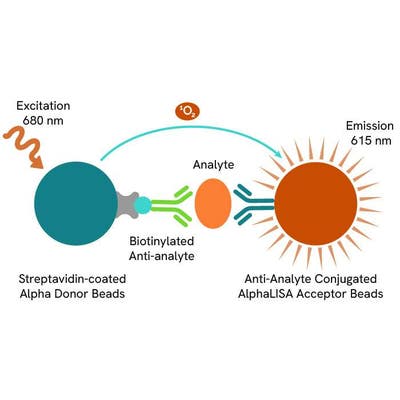

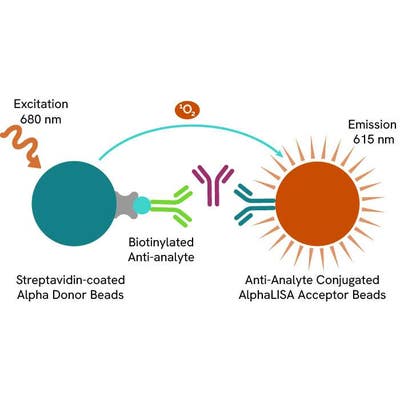 View All
View All
AlphaLISA Human PLGF Detection Kit, 100 Assay Points
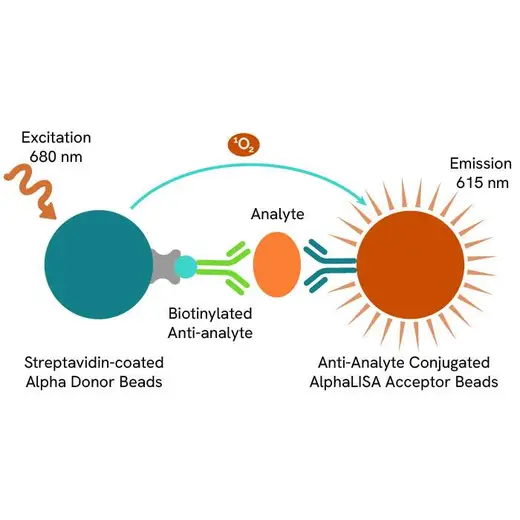

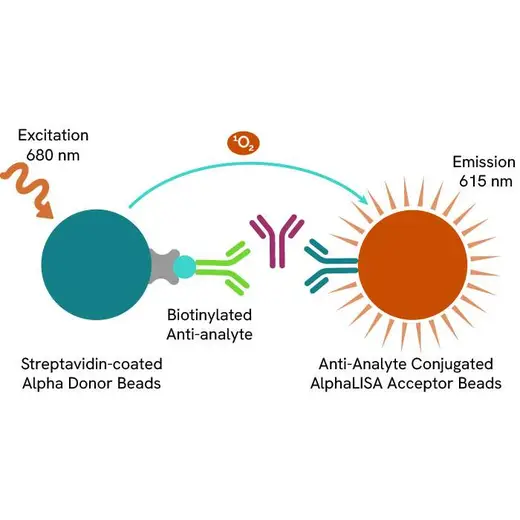




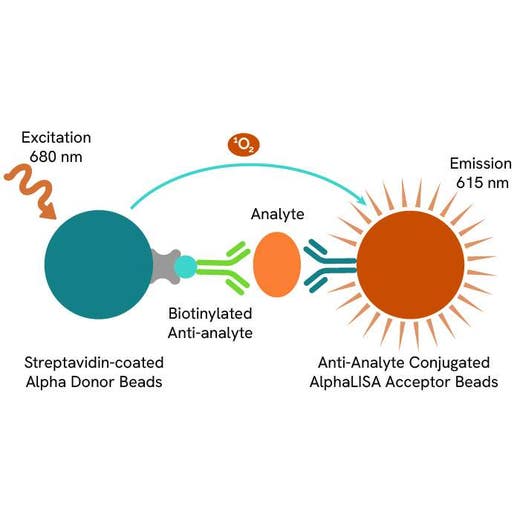

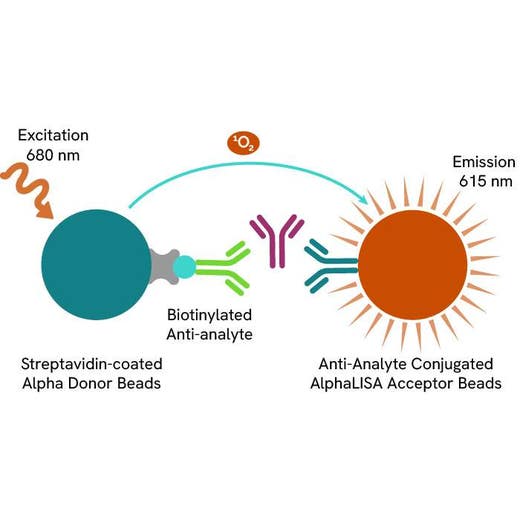




The AlphaLISA™ immunoassay kit for human placental growth factor (PIGF) enables the quantitative determination of human PIGF (PGF) in serum, buffered solution, and cell culture supernatants using a homogeneous AlphaLISA assay (no wash steps).
For research use only. Not for use in diagnostic procedures. All products to be used in accordance with applicable laws and regulations including without limitation, consumption and disposal requirements under European REACH regulations (EC 1907/2006).
| Feature | Specification |
|---|---|
| Application | Protein Quantification |
| Dynamic Range | 1.8 - 100,000 pg/mL |
| Limit of Detection | 1.8 pg/mL |
| Limit of Quantification | 5.9 pg/mL |
| Sample Volume | 10 µL |
The AlphaLISA™ immunoassay kit for human placental growth factor (PIGF) enables the quantitative determination of human PIGF (PGF) in serum, buffered solution, and cell culture supernatants using a homogeneous AlphaLISA assay (no wash steps).
For research use only. Not for use in diagnostic procedures. All products to be used in accordance with applicable laws and regulations including without limitation, consumption and disposal requirements under European REACH regulations (EC 1907/2006).







AlphaLISA Human PLGF Detection Kit, 100 Assay Points







AlphaLISA Human PLGF Detection Kit, 100 Assay Points







Product information
Overview
Formats:
- Our 100 assay point kit allows you to run 100 wells in 96-well format, using a 100 µL reaction volume (10 µL of sample).
- Our 500 assay point kit allows you to run 500 wells in 96-well or 384-well format, using a 50 µL reaction volume (5 µL of sample).
- Our 5,000 assay point kit allows you to run 5,000 wells in 96-well or 384-well format, using a 50 µL reaction volume (5 µL of sample).
Features:
- No-wash steps, no separation steps
- ELISA alternative technology
- Sensitive detection
- Broad sample compatibility
- Small sample volume
- Results in less than 3 hours
- Half the time of an ELISA assay
AlphaLISA technology allows the detection of molecules of interest in buffer, cell culture media, serum and plasma in a highly sensitive, quantitative, reproducible and user-friendly mode. In an AlphaLISA assay, a Biotinylated Anti-Analyte Antibody binds to the Streptavidin-coated Alpha Donor beads, while another Anti-Analyte Antibody is conjugated to AlphaLISA Acceptor beads. In the presence of the analyte, the beads come into close proximity. The excitation of the Donor beads provokes the release of singlet oxygen molecules that triggers a cascade of energy transfer in the Acceptor beads, resulting in a sharp peak of light emission at 615 nm.
Placental growth factor (PlGF) is a protein encoded by the PGF gene and is recognized as a member of the vascular endothelial growth factor sub-family. PlGF has been identified as a pro-angiogenic factor where it is primarily secreted in the placenta as a homodimer. Further, PlGF has been found in other tissues of the heart, lungs, and eyes to name a few. Studies using gene knockout models have demonstrated that PlGF plays a major role in the regulation of inflammatory processes associated with neo-angiogensis via PlGF/VEGFR-1. These studies identified relations between aberrant PlGF levels and atherosclerosis, hypertension, bone and collagen repair, and arthritis. This AlphaLISA kit allows for the detection and quantification of PlGF in human serum, plasma, CSF, cell culture media and cell lysates.
Specifications
| Application |
Protein Quantification
|
|---|---|
| Automation Compatible |
Yes
|
| Brand |
AlphaLISA
|
| Detection Modality |
Alpha
|
| Dynamic Range |
1.8 - 100,000 pg/mL
|
| Limit of Detection |
1.8 pg/mL
|
| Limit of Quantification |
5.9 pg/mL
|
| Product Group |
Kit
|
| Sample Volume |
10 µL
|
| Shipping Conditions |
Shipped in Blue Ice
|
| Target |
PIGF
|
| Target Class |
Biomarkers
|
| Target Species |
Human
|
| Technology |
Alpha
|
| Therapeutic Area |
Oncology
|
| Unit Size |
100 Assay Points
|
Image gallery






AlphaLISA Human PLGF Detection Kit, 100 Assay Points






AlphaLISA Human PLGF Detection Kit, 100 Assay Points






Video gallery

AlphaLISA Human PLGF Detection Kit, 100 Assay Points

AlphaLISA Human PLGF Detection Kit, 100 Assay Points

Resources
Are you looking for resources, click on the resource type to explore further.


How can we help you?
We are here to answer your questions.






























